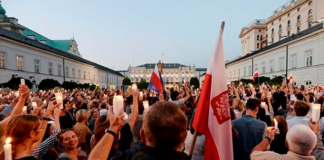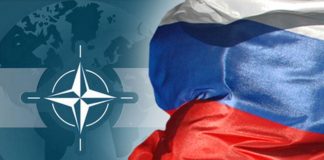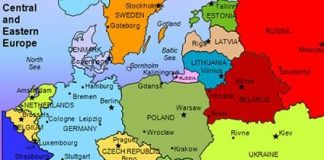Eastern Europe
Poland may be stripped of EU voting rights over judicial independence
The EU is on the brink of taking the nuclear option of stripping Poland of its voting rights in Brussels in response to plans...
Sofia Club Declaration
“SOFIA” CLUB (All-European Initiative)
DECLARATION - 29.05.2017
Important tectonic changes are happening in Western societies. Those changes reveal fundamental change in the instinctive perception of today’s...
Brexit: Divorce by mutual consent or fight?
by Giullietto Chieza
According to Tomas Prouza - state secretary for EU Affairs in Prague - “There is a real danger that British politics, with...
Public Strategic Investments Instead of EFSI 2.0
The EU Commission under Jean-Claude Juncker is proposing an extension of EFSI, the European Fund for Strategic Investments. Instead of terminating in 2018, it would run until 2020. The public funds and EU guarantees would be topped up from 21 billion euros to 33.5 billion. In this way, the intention is to mobilise 500 billion euros in investment capital instead of 315 billion as originally planned. This sounds like a lot of money, but on closer inspection it shrinks away rapidly.
History Wars – Poland, Ukraine and Lithuania revise the meaning of...
On Thursday, MPs from the Verkhovna Rada, Ukraine's parliament, approved the 'Declaration of Remembrance and Solidarity' of the parliaments of Ukraine, Poland and Lithuania, which put the blame for the events of the Second World War squarely on the Soviet Union.
Europe, vassal of USA (Is NATO preparing WWIII?)
At the end of Wednesday’s session, NATO Secretary General Jens Stoltenberg confirmed that the United States, Britain, Germany and Canada had agreed to provide the leading elements of the battle groups to be deployed respectively in Poland and the three former Soviet Baltic republics: Estonia, Lithuania and Latvia.
Orban’s referendum – no triumph, no defeat
The Hungarian prime minister, Viktor Orbán, has failed to convince a majority of his population to vote in a referendum on closing the door to refugees, rendering the result invalid and undermining his campaign for a cultural counter-revolution within the European Union.
Of Folk Devils And Moral Panic: Hungary’s Referendum On Mandatory EU...
For several weeks, streets in Budapest, as elsewhere in Hungary, have been awash with government-funded placards representing an overt incitement to racial and religious hatred. Far from portraying those fleeing to Europe from Syria, Iraq, Afghanistan and other countries as genuine asylum seekers, escaping brutal and apparently intractable civil conflicts, the
Transforming Central East Europe
Recent developments in Europe show that the global financial crisis and its consequences are far from being resolved. On the contrary, we are witnessing deepening signs of a meta-crisis which goes beyond the economic sphere. This paper will try to shed some light on the key systemic problems and political implications of post-communist transformation in Central
Free Movement of Labour and Brexit: Reclaiming National Sovereignty or a...
A ‘positive nationalism’, therefore, in contrast to insular reactionary nationalism, is both ‘popular’ and ‘democratic’. Its content is defined against, in the first instance, national ruling elites and involves ‘decisive struggles’ for democratic rights. Such struggles also have the inherent potential to interlink with other national struggles of a similar democratic and popular nature









